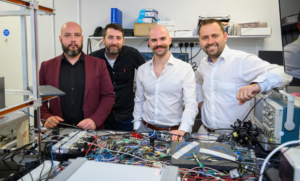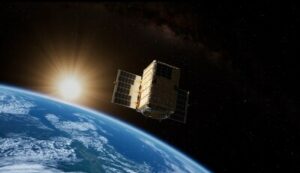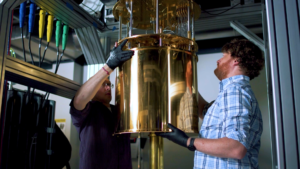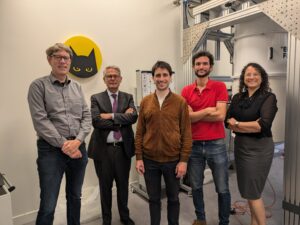Introduction
Hi there, and welcome to our September monthly news update! As the world of quantum technology continues to expand at an unprecedented pace, we at QURECA are excited to bring you the latest updates, breakthroughs, and opportunities in this transformative field. This month, we’re diving into key industry developments, exciting course announcements, and opportunities to engage with the quantum community.
September continues to be a pivotal month, with innovations in quantum computing, new collaborations between academia and industry, and opportunities for professionals to upskill in quantum technologies. Whether you’re an industry leader, student, or researcher, there’s something for everyone in this month’s update!
Weekly Quantum News highlights
Before we go flying into the latest news, here’s a quick update on the news that we’ve covered in our weekly LinkedIn updates.
Scientists from DRDO Young Scientist Laboratory for Quantum Technologies and Tata Institute of Fundamental Research, along with Tata Consultancy Services, successfully tested India’s first domestically-developed 6-qubit quantum processor, marking a significant milestone in the National Quantum Mission’s aim to expand to 1000 qubits within a decade. Meta Tech experts issued a warning against a potential “quantum apocalypse”, advising on Meta’s own quantum-hardened strategy and prompting others to think similarly. Fujitsu and Osaka University co-developed two quantum computing technologies that may help achieve quantum advantage far sooner through hefty reductions in the number of required qubits. D-Wave joined the Chicago Quantum Exchange as a corporate partner to promote quantum education, research, and industry adoption. Quantum Brilliance and Oak Ridge National Laboratory announced a strategic collaboration to develop new hybrid computing capabilities by integrating QB’s diamond-based quantum processors into ORNL’s high performance computing HPC systems. Kipu Quantum proclaimed the dawn of the “Commercial Quantum Advantage” era with the advent of a new class of quantum algorithms, reporting the successful execution of the largest quantum optimisation algorithm yet. The U.S. tightened its export-belt with new restrictions on the sale of quantum computing and other advanced technologies including semiconductor manufacturing equipment. Oxford Ionics announced a new world record for quantum state preparation and measurement (SPAM) across any quantum computing hardware type, achieving a SPAM fidelity of 99.9993%, marking a 13-fold reduction in errors compared to previous methods. Osaka University and RIKEN developed a Flagged Weight Optimisation method for error correction using colour codes, an alternative to surface codes, that significantly enhances their fault-tolerance thresholds. HSBC, in collaboration with Quantinuum, initiated a pilot programme employing post-quantum cryptography technology for secure transactions with tokenised physical gold.
Other Big Quantum News!
NATO invest in low SWAP quantum sensing
The NATO Innovation Fund (NIF) has made its first investment in a DIANA cohort company, @Aquark Technologies, as part of a €5 million seed round. This investment aims to enhance quantum sensing technology capabilities, critical for sectors like defence, telecommunications, finance, and many more. Aquark’s breakthrough in magnetic field-free cold atom traps, known as Supermolasses, will provide smaller, more energy-efficient, and cost-effective quantum sensors, directly supporting NATO’s goal of improving security and infrastructure resilience, marking a significant step in advancing quantum technologies for both commercial and defence applications.

Quantum technologies for UN Sustainable Development
According to a World Economic Forum and Accenture report published on 20th September, quantum technologies hold potential to advance all 17 UN Sustainable Development Goals. These technologies can significantly contribute to goals like poverty alleviation, clean energy, and health. However, realising their potential requires developing a robust quantum ecosystem and prioritising applications with imminent impact, such as water quality monitoring and disaster preparedness. The report highlights the need for global collaboration to harness quantum innovations sustainably.

UK to get first ever quantum-secured connection between data centres
BT Group, Toshiba, and Equinix have teamed up to establish the UK’s first quantum-secure data centre-to-data centre connection, a pioneering effort aimed at safeguarding business data against future quantum threats. This connection uses quantum key distribution (QKD) to ensure secure data transmission and is available at Equinix’s data centres in London’s Canary Wharf and Slough. The collaboration marks a significant step towards democratising quantum-secure communications, making advanced security accessible to a broader range of businesses. This initiative not only strengthens data protection but also positions these companies at the forefront of the quantum-safe networking sector, enhancing their capabilities in anticipation of the challenges posed by the advancement of quantum computing technologies.
Boeing launch new QKD mission
Boeing announced the launch of Q4S, a satellite set for a 2026 mission to demonstrate quantum entanglement swapping capabilities in space. This initiative aims to pioneer a secure, global quantum internet linking quantum sensors and computers. The technology, which enables data transmission over vast distances without physical movement, could revolutionise fields such as agriculture, climate science, navigation, and secure communication. The in-space test joins a small collection of space-based quantum comms projects and is another strong step towards enhancing global quantum communication infrastructure.

Microsoft and Atom Computing partnership taking neutral atom computing to new heights
Microsoft and Atom Computing announced a new commercial quantum computing offering, poised to be the world’s most powerful quantum machine. Combining Microsoft’s qubit-virtualisation system with Atom Computing’s advanced neutral-atom hardware, this collaboration aims to produce highly reliable quantum computation systems. Atom Computing’s hardware supports over 1,200 physical qubits with plans for significant expansion, integrating large-scale error correction and all-to-all qubit connectivity. This innovative offering will be available on the Azure Quantum compute platform, which is continuously upgraded to enhance performance and scalability. The partnership extends to Azure Elements, designed to tackle complex scientific challenges in chemistry and materials science, supporting AI-driven simulations and offering state-of-the-art computational solutions.
Atom Computing secure Danish investment funding
Also, following Atom Computing’s news with Microsoft, it was also announced they had secured 10 million USD from PensionDanmark to help the company establish itself in Denmark. 
Quantum annealing arrives in the Middle East
D-Wave and Staque have formed a strategic partnership to accelerate the adoption of annealing quantum computing in the Middle East. Announced at Qubits UAE in Dubai, the collaboration aims to deploy D-Wave’s quantum computers and hybrid solvers via its Leap quantum cloud service. The partnership aims to support regional economic diversification efforts of moving away from oil production and exports, expanding into areas such as logistics, financial services and advanced technology.
Pasqal and Université de Sherbrooke announce partnership
Pasqal and Université de Sherbrooke signed an agreement to collaborate on neutral atom quantum computing research and education. This collaboration aims to develop a quantum-ready workforce through enhanced educational materials, hands-on training using Pasqal’s technology. Joint research projects and internship opportunities are also planned. Pasqal is investing in a Research Chair in Quantum Computing at UdeS, supported by over $1 million in combined funding.
Flight gear gets quantum boost
Alice & Bob, in collaboration with Thales and supported by Inria, have embarked on a €2.6 million 3-year project to develop quantum algorithms for advanced electromagnetic simulations to optimise airborne equipment designs. The i-Démo Régions project focuses on creating fault-tolerant quantum computers and will implement the quantum algorithms including testing on radars and antennas. This Franco collaboration is part of the France 2030 initiative and aims to position France as a leader in quantum computing.

Mini quantum computers for defence applications
Oxford Ionics, alongside Infineon Technologies AG, has secured a multimillion-euro contract to build a portable quantum computer, MinIon, for enhancing national security and defence applications. This collaboration aims to leverage Oxford Ionics’ unique Electronic Qubit Control technology and Infineon’s microfabrication to deliver compact, robust quantum computing solutions.
Check out our other channels!
These are some of this month’s updates that didn’t make it into our weekly LinkedIn news. Give QURECA’s LinkedIn page a follow for more frequent weekly updates from the world of quantum technologies!
Don’t forget our other socials, including Instagram, X (Twitter) and YouTube, and feel free to contact us directly through our website, for all the latest in quantum technologies.
See you in the next quantum news monthly update!




